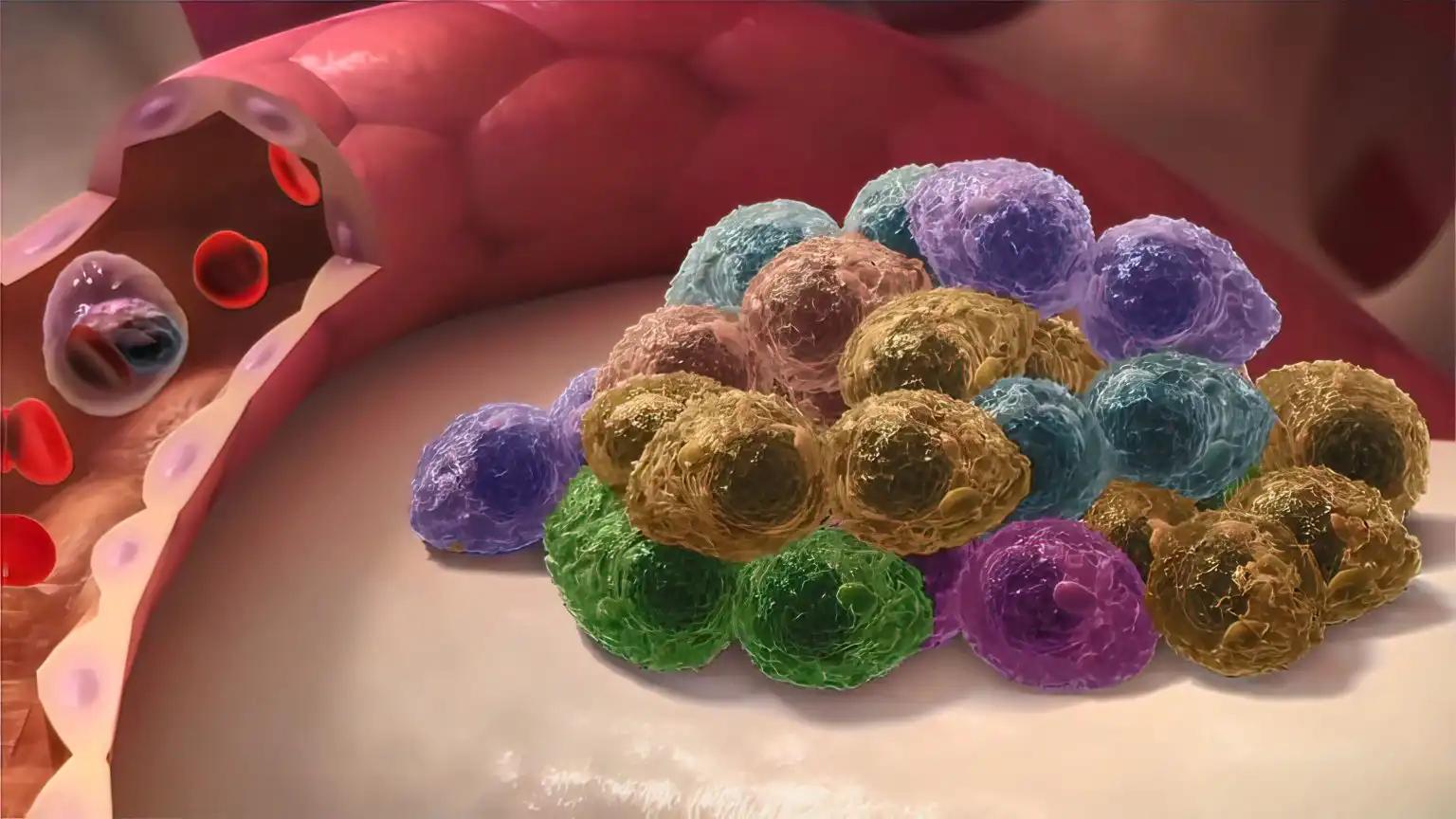KEY TAKEAWAYS
- The MRD2STOP study aimed to investigate the outcomes of discontinuing maintenance therapy in patients with MM.
- The primary endpoints were to determine the MRD resurgence rate, PFS, and OS.
- Researchers noticed that stopping maintenance therapy resulted in continued MRD negativity and no disease progression.
Measurable residual disease (MRD) negativity is a potential marker for the absence of disease in multiple myeloma (MM), which could be used to guide treatment cessation. MRD2STOP (NCT04108624) is a prospective study investigating outcomes among patients with sustained multimodal MRD negativity who discontinue maintenance therapy.
Benjamin Avi Derman and the team aimed to assess the impact of discontinuing maintenance therapy in patients with MM and sustained multimodal MRD negativity on disease progression and MRD status.
They performed an inclusive analysis where discontinuation of maintenance was permitted if patients were MRD negative by PET/CT, flow cytometry (limit of detection [LoD] 10-5), and next-generation sequencing (NGS) by clonoSEQ (threshold 10-6). Patients underwent serial blood testing along with clonoSEQ, flow cytometry, and PET/CT annually for 3 years.
Concurrent bone marrow aspirate samples also underwent CD138+ immunomagnetic enrichment analyzed using clonoSEQ to achieve MRD 10-7 sensitivity. The primary endpoints were the MRD resurgence rate at the 10-6 threshold, along with progression-free survival (PFS) and overall survival among those MRD negative by the standard non-enriched clonoSEQ.
About 83 patients were screened, and 47 patients met eligibility to discontinue maintenance as of 1/21/24. The median age was 66 years (range 39-84). 17 (36%) had high-risk disease at diagnosis (8 with 1q copy abnormalities, 5 with ISS stage 3, 2 with t(4;14), 1 with t(14;16), and 3 with del17p). Most (45/47, 96%) had 1 line of therapy; 26 (55%) received a triplet, and 19 (40%) a quadruplet. Prior autologous transplant was received by 30 (64%) and multi-drug consolidation in 36 (77%) prior to single-agent maintenance. 96% received lenalidomide as maintenance.
The median duration of consolidation/maintenance therapy prior to discontinuation was 36 months (range 12-95), including 14 (30%) with <27 months. Median follow-up was 30 months. Of 47 enrolled patients, 5 (11%) experienced disease progression and an additional 6 (13%) had MRD resurgence at 10-6. Of 11 MRD resurgent events, 4 (36%) were MRD 10-7 positive at baseline, and 3 (27%) were MRD 10-7 positive 1 year prior to MRD 10-6 resurgence. About 2 second hematologic cancers occurred during follow-up: 1 Hodgkin lymphoma and 1 B-ALL, the latter of which resulted in the only patient death in the study.
The estimated 3-year PFS was 85%, including 93% for patients MRD 10-7 negative (n=40) at baseline and 31% for those MRD 10-7 positive (n=7) at baseline (logrank P<0.001). Among the MRD evaluable patients (n=45), the 3-year MRD-free survival (MRD-FS) was 68%; 78% for patients MRD 10-7 negative (n=38) and 33% for patients MRD 10-7 positive (n=7) (logrank P<0.001). There were no differences in MRD-FS or PFS when stratified by high-risk disease, receipt of transplant, consolidation, or duration of maintenance.
The study concluded that discontinuation of maintenance therapy among patients with MM & multimodal MRD-negativity results in a high rate of sustained MRD-negativity and lack of disease progression. Furthermore, CD138+-enriched MRD samples using the clonoSEQ assay may enhance the identification of patients who can safely discontinue therapy.
The trial was sponsored by the University of Chicago.
Source: https://meetings.asco.org/abstracts-presentations/234914
Clinical Trial: https://clinicaltrials.gov/study/NCT04108624
Derman B A, Cooperrider J.H., Kubicki T, et al. (2024). “Discontinuation of maintenance therapy in multiple myeloma guided by multimodal measurable residual disease negativity (MRD2STOP).” Presented at ASCO 2024. J Clin Oncol 42, 2024 (suppl 16; abstr 106), 10.1200/JCO.2024.42.16_suppl.106



